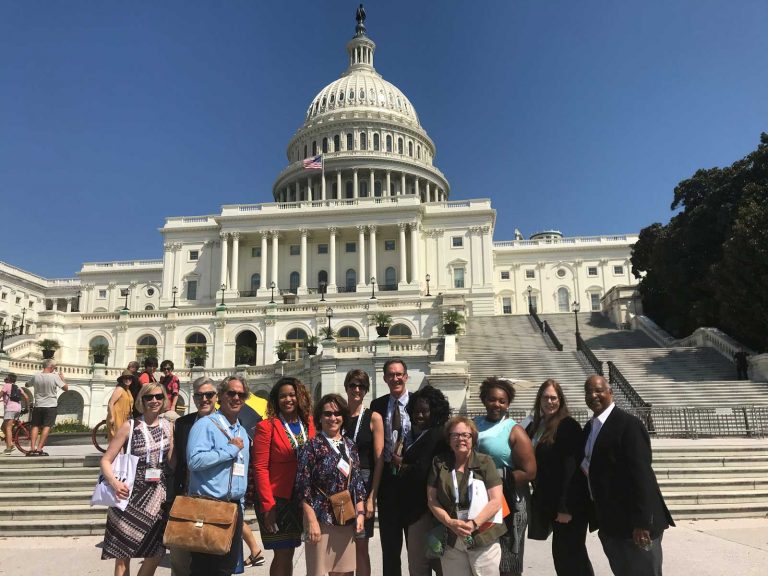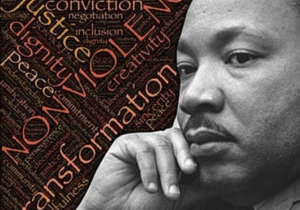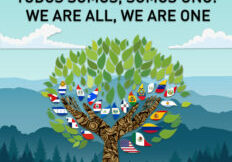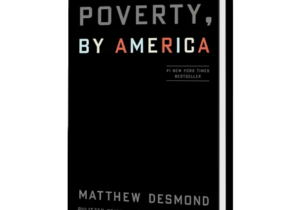Engaging Community
In a vibrant city like Charlotte, it’s easy to overlook the fact that many are suffering amid affluence. Our community education and civic engagement efforts increase awareness of the complex issues facing more than 100,000 neighbors living in poverty.
Even families whose income is twice the Federal Poverty Level struggle to afford safe housing, reliable transportation, child care, utilities, food, and other necessities. An unexpected event such as an illness or job loss can send an accomplished person into a downward financial spiral.
More than 100,000 of our neighbors live in poverty.
Empowering Advocates
The Civic Engagement Program engages and empowers the community to be advocates for people facing poverty by:
- Increasing awareness of the complex issues that make it challenging for some neighbors to make ends meet
- Encouraging community dialogue and participation in removing barriers to financial security
- Changing attitudes and policies that create barriers to economic mobility
The most powerful advocates are customers themselves. We provide training to highly motivated individuals interested in sharing their story and effecting positive change for others living in poverty.
Poverty Simulations
Since 2008, Crisis Assistance Ministry has been the local lead facilitator of the Community Action Poverty Simulation (CAPS), a two-hour interactive, immersive experience designed to create awareness among participants of life at the bottom rung of the economic ladder. The simulation presents participants with real-life scenarios and challenges faced by people living in poverty and is immediately followed by a group debrief, during which participants reflect on the experience, discuss insights, and consider next steps.
Charlotte’s Six-Figure Salary Requirement
Charlotte, North Carolina, has become a place where a comfortable life requires a six-figure salary, according to a recent study from SmartAsset. The study’s authors used a 50/30/20 model for their calculations, in which no more than 50% of a household’s income is allocated for essentials such as housing, transportation, and groceries, 30% for “fun” things such as hobbies and entertainment, and 20% for savings, investments, and paying off debt.
Read MoreThe Injustice of Menstrual Stigma Is Multiplied by Poverty
Period poverty. It’s not a topic normally raised during economic equity discussions, but that doesn’t make it any less relevant. For half the world’s population, menstruation is a biological reality that brings added expenses and, all too often, unwarranted stigma.
Read MoreReflections on Black History Month 2024: Artists, Trailblazers, and the Racial Wealth Divide
Black History Month serves as a reminder of the resilience, strength, and contributions of Black Americans throughout history. It’s also an opportunity to confront the challenges and injustices that persist, including the racial wealth gap. We at Crisis Assistance Ministry know that through collective will and action, our community can honor the legacy of Black history while working toward a future where everyone has the opportunity to thrive and prosper, regardless of race or background.
Read MoreWhy VITA Is So Vital to Our Community
The Volunteer Income Tax Assistance (VITA) program is an often overlooked but invaluable resource for families across the country, including many of the people served at Crisis Assistance Ministry. Aimed at promoting financial wellness and administered by the Internal Revenue Service (IRS), VITA relies on trained volunteers to provide free tax preparation services to eligible taxpayers. The FREE tax return service is available through two Mecklenburg County agencies this year.
Read MoreMLK Day 2024: Upholding the Dream
MLK Day invites us to consider how we can contribute to creating communities founded on love, compassion, and understanding. For nearly 50 years, we at Crisis Assistance Ministry have been working on the front line to do just that by providing help, hope, and understanding to people struggling with limited financial resources.
Read MoreCan We Really Abolish Poverty?
For Pulitzer Prize-winning author and sociologist Matthew Desmond, the answer is YES!
During his recent visit to Charlotte-Mecklenburg, Desmond brought both data and passion to the discussion of why America is one of the richest nations on earth, yet has “more poverty than any other advanced democracy.”
The Cycle of Poverty and Mental Illness
Defining the connection between poverty and mental illness is a chicken-and-egg scenario: does mental illness create an inability to overcome a state of poverty, or does poverty increase or perpetuate the occurrence of mental illness?
Read MoreHispanic Heritage Month: Celebrating Cultures and Contributions
It’s Hispanic Heritage Month! This annual celebration of the cultures and contributions of Americans who trace their roots to Spain, Mexico, the Caribbean, and Central and South America, runs from September 15 through October 15.
Read MoreWill Medicaid Expansion Help Mecklenburg?
This long-awaited move by North Carolina will provide welcome relief to many low-wage earners who often are not offered health insurance through their employers. Considering the struggles of working families here in Mecklenburg County, there are certainly thousands who will benefit from Medicaid expansion in our own community. Based on evidence from other states, it’s likely all of us will reap the benefits of improved community health, lower eviction rates, and a stronger safety net for our neighbors.
Read MoreHear Pulitzer Prize-winning Matthew Desmond
We are proud to partner with Davidson College to co-host Pulitzer Prize-winning author Matthew Desmond on their campus. Desmond’s thought-provoking message will help us understand the systemic issues contributing to poverty and inspire us to be part of the solution here in our own community.
Read More“Poverty, By America”: New Book Asks the Hard Questions
Does poverty exist because we want it to? In his new book, “POVERTY, BY AMERICA,” Matthew Desmond asks this and other provocative questions about persistent poverty in our land of plenty.
Read More












